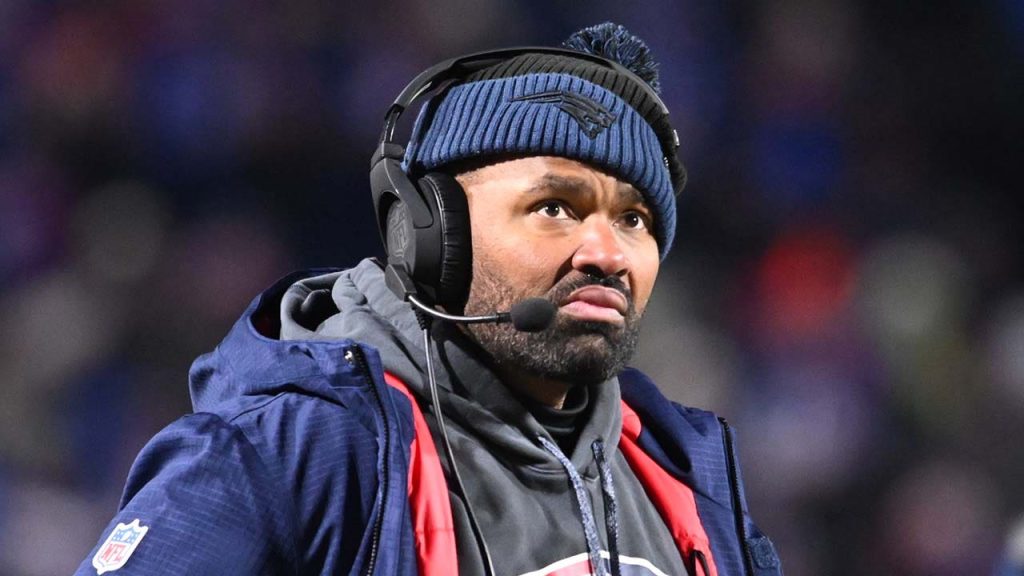Rob Gronkowski, former New England Patriots tight end and current sports analyst, publicly expressed his discontent with the Patriots’ decision to dismiss head coach Jerod Mayo after just one season. Gronkowski, speaking on FOX, characterized the move as “shocking” and “unfair,” arguing that Mayo, a rookie head coach, hadn’t been given adequate time to develop and prove his capabilities. He emphasized the inappropriateness of judging a coach solely on their first year’s performance, especially given the inherent learning curve and challenges associated with leading an NFL team. Gronkowski’s sentiments reflect a belief that Mayo deserved a longer leash and a more patient approach from the Patriots organization.
Mayo’s tenure, which followed the departure of legendary coach Bill Belichick, was marked by struggles. The Patriots finished the season with a disappointing 4-13 record, a stark contrast to the franchise’s historical success under Belichick. This underwhelming performance, coupled with the team’s offensive and defensive struggles, ultimately led to Mayo’s dismissal. Despite the team’s struggles, Gronkowski’s defense of Mayo highlights the complexities of evaluating a coach’s performance, particularly in the demanding environment of professional football. The short leash afforded to Mayo, in Gronkowski’s view, failed to acknowledge the time and experience necessary for a new head coach to implement their vision and build a winning culture.
The context surrounding Mayo’s dismissal underscores the weight of expectations placed upon the Patriots organization. Having enjoyed unparalleled success under Belichick, including six Super Bowl titles, the Patriots were accustomed to a winning tradition. The transition to a new era without Belichick was always going to be challenging, but the pressure to maintain a high level of performance likely contributed to the swift decision to move on from Mayo. While the team’s on-field struggles were evident, Gronkowski’s perspective suggests a disconnect between the immediate desire for results and the long-term development of a head coach.
Adding further complexity to the situation is the relationship between Mayo and Gronkowski, who were teammates for several years in New England. Gronkowski’s public support for Mayo suggests a deep respect and understanding of his former teammate’s coaching potential. This personal connection adds another layer to Gronkowski’s critique, as it comes from someone who witnessed Mayo’s abilities firsthand. His comments not only question the Patriots’ decision-making but also advocate for a more nuanced approach to evaluating coaching performance, especially for those in their first head coaching role.
The Patriots’ struggles under Mayo extended beyond their overall record. The team’s offensive output ranked near the bottom of the league, with low rankings in points scored and yards gained. While the defense performed slightly better, it wasn’t enough to compensate for the offensive deficiencies. The decision to draft rookie quarterback Drake Maye in the first round further complicated matters, as the team initially opted to start a veteran quarterback before eventually giving Maye the reins. This quarterback uncertainty, combined with a lack of overall offensive firepower, contributed to the team’s underwhelming performance and ultimately played a role in Mayo’s dismissal.
Patriots owner Robert Kraft, in announcing Mayo’s departure, acknowledged the difficulty of the decision. He stated that the team’s performance trajectory did not meet his expectations, leading to the conclusion that a change was necessary. While Kraft’s statement acknowledged the challenging nature of the decision, it also reinforced the high standards expected within the Patriots organization. This emphasis on performance underscores the pressure faced by coaches in the NFL, particularly those inheriting a legacy of success. While Gronkowski’s perspective highlights the importance of patience and development, the realities of professional sports often prioritize immediate results, leading to difficult decisions like the one made regarding Mayo’s future.

